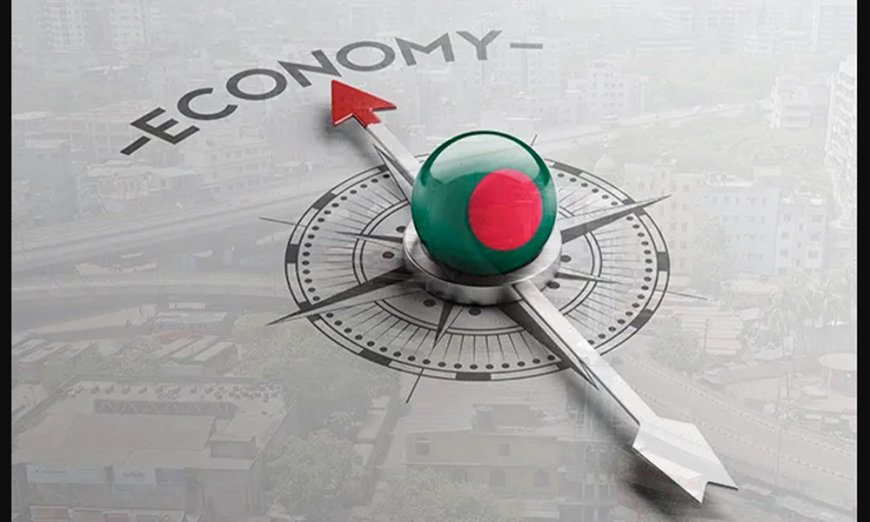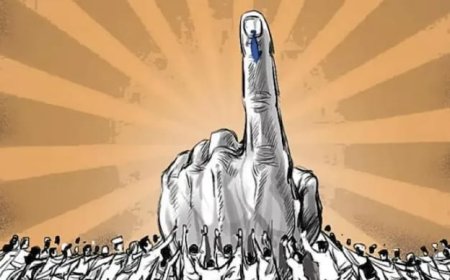Country’s Economy On A Directionless Path
Only the steady rise in remittance inflows has consistently boosted the current account surplus.

Country’s Economy Struggles Amid Rising Poverty and Unemployment
After the fall of the autocratic regime, the interim government announced the budget for fiscal year 2025–26 last June, emphasizing the goal of “building a non-discriminatory and sustainable economic system.” Breaking from the tradition of growth-focused budgets, it was presented as an inflation-control budget.
However, although inflation fell slightly in the first two months of the fiscal year, it rose again in September. General inflation stood at 8.36 percent, up from 8.29 percent in August. Meanwhile, export earnings declined continuously, falling by 4.61 percent, and the import of capital machinery has remained sluggish. These factors have contributed to rising unemployment and poverty.
Currently, around 3 million people have newly become unemployed, and at least 28 percent of the population lives below the poverty line. Experts warn that these trends indicate a macroeconomy moving in a directionless path.
Revenue Deficit and Banking Sector Concerns
In the first month of the fiscal year, a revenue deficit of approximately Tk 6,500 crore was recorded, compared with about Tk 1 trillion (1 lakh crore) in the previous fiscal year. Non-performing loans in the banking sector have reached a record Tk 5 trillion (5 lakh crore), while private sector credit growth has dropped to its lowest level in 22 years, hampering overall economic growth.
As a result, experts suggest that after a year of the interim government, there has been little improvement in people’s living standards.
Export Earnings Decline
Export earnings, which had remained relatively stable despite economic crises, have now started to fall. In August and September, exports decreased by about 3 percent and 4.61 percent, respectively, according to the Export Promotion Bureau (EPB).
Revenue Shortfalls
During July–August 2025, customs and tax collections fell short by Tk 6,577 crore. The National Board of Revenue (NBR) had a target of Tk 61,000 crore but collected only Tk 54,423 crore. Revenue collection suffered partly due to unrest in May and June. Last fiscal year, revenue collection had already fallen short by at least Tk 1 trillion.
Rising Poverty and Unemployment
In three years, poverty has risen by about 10 percent, reaching roughly 28 percent. In 2022, the poverty rate was 18.7 percent. Additionally, 18 percent of households remain at risk of falling below the poverty line, according to private research organizations.
Factory closures over the past year have left around 3 million people unemployed. Data from the Bangladesh Bureau of Statistics (BBS) shows unemployment rose by 4.63 percent in the second quarter of fiscal year 2024–25, totaling 2.7 million. Reduced female labor force participation has worsened the situation.
ADP Implementation and Investment Decline
Implementation of the Annual Development Programme (ADP) has slowed. Only 2.39 percent of allocated ADP funds were spent in July–August 2025, down from 2.57 percent in the same period last year.
Private sector investment remains stagnant due to political instability and high loan interest rates. Private sector credit growth fell to 6.35 percent in August, the lowest in 22 years. Rising policy interest rates have further discouraged entrepreneurs from new investments.
Non-Performing Loans Surge
Non-performing loans (NPLs) have reached an unprecedented Tk 5 trillion. As of June 2025, NPLs accounted for roughly 30 percent of total disbursed loans. Within a year, defaulted loans increased by 150.91 percent, with a three-month increase of more than Tk 1 trillion.
Remittance Growth Provides Some Relief
Remittance inflows remain the only consistent positive in the economy, contributing to a current account surplus. In July–August 2025, the surplus was USD 483 million, compared with USD 191 million in the same period last year. Growth in remittances, up 18.4 percent, has helped stabilize the external sector and partially offset other economic challenges.
What's Your Reaction?





















































































